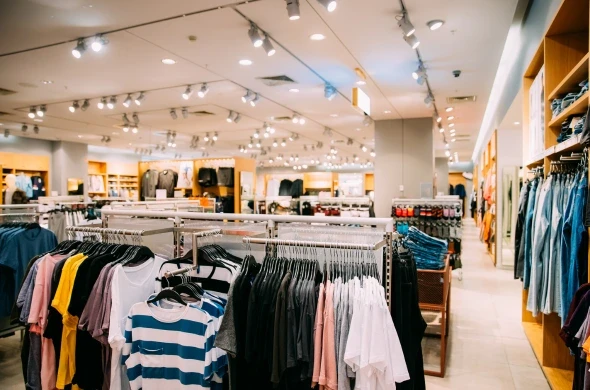Retailers and brands alike are concerned about millennials' growing influence and purchasing power, those that embody the "digital native" attitude. Millennials, also known as Generation Y or Net Generation, have been shaped by technology and are near-universally fluent in digital tools such as social networks like Facebook, Snapchat, and Google+, as well as mobile computing.
According to a new report by Google, more than 50% of Gen Y are classified as Digital Natives, those who have never known life without the internet. They are already approaching consumer power.
What is digital native consumer behavior?
The digital native consumer is open to exclusive offers and deals. They do not like mass-market advertising and prefer targeted and personalized messaging and incentives over traditional promotions.
They are also more media-savvy than their parent's generation. Digital natives can spot a bad deal or advertisement from miles away. Brands that succeed in reaching them must do so with a tailored approach to digital channels.
Digital natives are more suspicious of traditional media and advertising, which they believe takes advantage of consumer ignorance. Brands need to connect through social networks and online communities rather than TV or radio to get their attention.
They respond well to relevant information about real-time events such as breaking news about a brand or new product. Paid search ads and social network campaigns can drive them to your site when they're in the mood to buy.
Digital natives also evaluate every possible touch point, including email blasts, social posts, and online banners. This also includes paid ads for each stage of the consumer journey: awareness, consideration, and decision-makers.
Behavior is vital for anyone who wants to stay ahead of the curve. It's not only about knowing what they're doing today but how they expect to be treated by brands in the future.
Digital disruption and the NFT craze
The rise of digital natives is also fueling the popularity of NFTs (non-fungible tokens), which are reusable and potentially collectible items with unique attributes.
NFTs have great potential for the retail business, especially with younger generations. They provide a link between digital natives who expect personalized experiences from brands and physical items that come to life when experienced virtually.
What exactly is NFT?
Non-fungible tokens are cryptographically unique, allowing them to be individually differentiated. One use case of NFTs is within decentralized blockchain-based games and applications to represent player progress, digital assets, or privileges in a game.
Law in a time of change
The rise of the digital native consumer has been incredibly disruptive to the retail business and the entire industry in general. When companies need to stay agile and willing to change, laws drafted decades ago are now holding them back from genuinely engaging with emerging consumer behavior.
Lawmakers have been playing catch up as new technology continues to emerge. However, lawmakers must re-evaluate how laws can impact the digital native consumer and for companies in different industries.
From the tangible to the intangible and back again
As the consumer journey evolves, brands must also create a consistent brand experience across both physical and digital platforms. It's not as simple as just integrating digital into your current strategy, and they need to think about how they can use emerging technology such as NFTs within their business. The way we shop is changing, and brands need to adapt or risk becoming extinct.
A growing trend
NFTs are becoming increasingly popular, with all kinds of brands jumping on the bandwagon. NFT grows in popularity as new blockchain technologies continue to emerge and change the retail landscape.
NFT is at its best when used for game or game-like experiences. It can also help create ways to connect people with shared interests through gamification.
How retailers can compete with the digital natives
Retail needs to continue evolving with the technological times. It's no longer enough for retailers to have a physical storefront, and they need to create an online presence that consumers can engage with equally.
Digital natives expect brands to provide them with personalized, customized experiences at each stage of their consumer journey. If you're not able to meet those expectations, you risk alienating a new generation of shoppers. It's not just about being able to provide personalized experiences. It's also essential for companies to have a strong social media presence and adapt their interaction with customers as social media trends change. Retailers need to think of themselves as a digital brand first and foremost, rather than just a physical store.
NFTs are causing a re-evaluation of how business is done in traditional industries. The retail industry is no exception to this, with brands looking at ways to make the most of blockchain technology to create new experiences for consumers.
Turning the tides
Now that the digital native consumer is taking over, there's a lot of pressure on companies to adapt their business strategy. But as we have seen from some of the biggest brands out there. Those who fail to change with the times will be left behind.
Own your insight
It's up to retailers to create a more personalized, rewarding experience. Now is the time for brands to start changing their business strategy to make that perfect customer journey.
The high street is changing, and it's changing fast. Retailers need to focus on providing customers with experiences across all platforms if they want to stay afloat in the ever-changing retail landscape.
Sell with service
To compete with the digitally native consumer, retailers need to provide consumers with a brand experience that matches or exceeds what they can find online. If you want to create personalized experiences for your customers, it's essential to have an online presence that is just as good if not better than your physical stores.
Shift customer mindset
The digital native consumer has been conditioned to expect a personalized experience from brands. It's up to retailers to focus on providing that level of customer service for any new venture they embark upon if they want to stay relevant in a constantly changing market.
Reshape your technology stack
Brands need to start looking at how emerging technologies such as NFTs can help them achieve their business goals and provide consumers with the experience they expect.
Moving forward
NFTs are becoming increasingly popular for brands, with all types of companies focusing on using the technology to better connect with their consumer base. Now is the time for retailers to re-evaluate how they do business across multiple channels to stay relevant.
Retailers who arm themselves with information about the behavior of clients are likely to have an upper arm during this digital era.
Technology Consulting Services | Retail Consulting Services
At Ollen Group, our retail management consultant services are up to date with consumer shifts in the Middle East, and the necessary steps needed to find success in the future - including the development of different aspects to be part of the metaverse and cope with the demand for digital progression. Ollen Group technology consultancy services and retail business consultant services offer turnkey solutions from strategy to execution, as well as design, development, and deployment.
Read our latest insights, ideas, and perspectives that explore the trends shaping the future of business and society. Our consultancy services go hand-in-hand with these insights, confirming our position as industry leaders. Get in touch to find out more about our consulting services and industry expertise.



